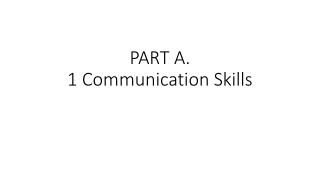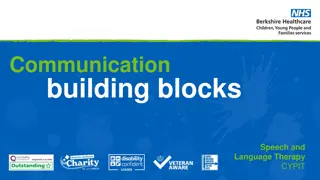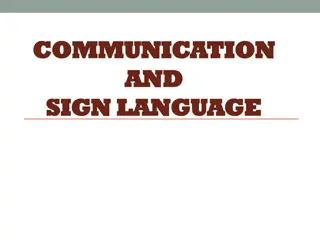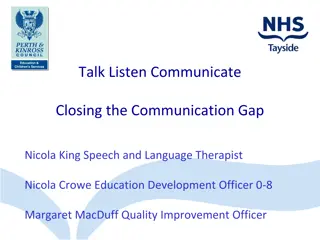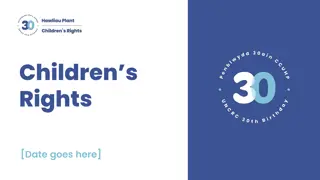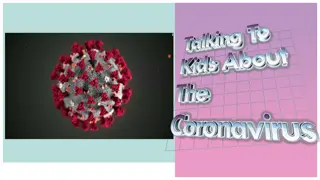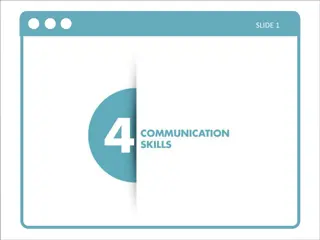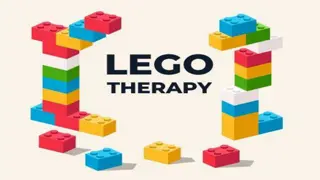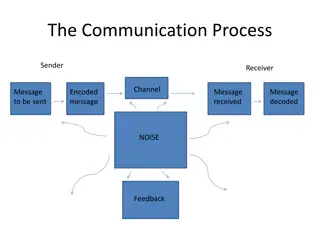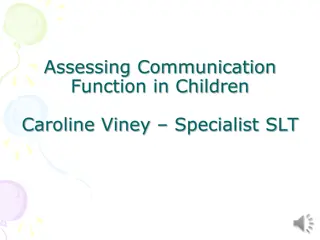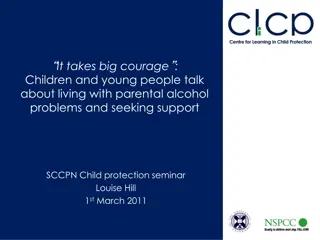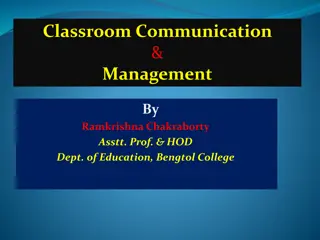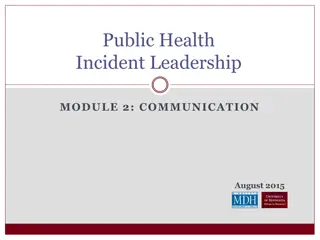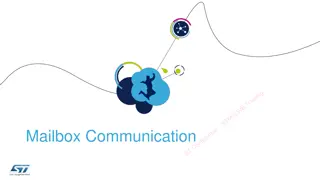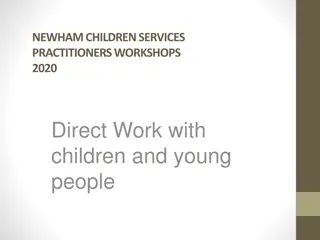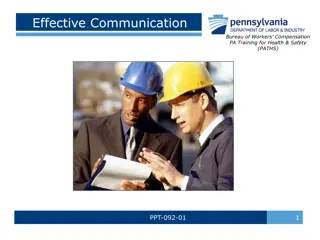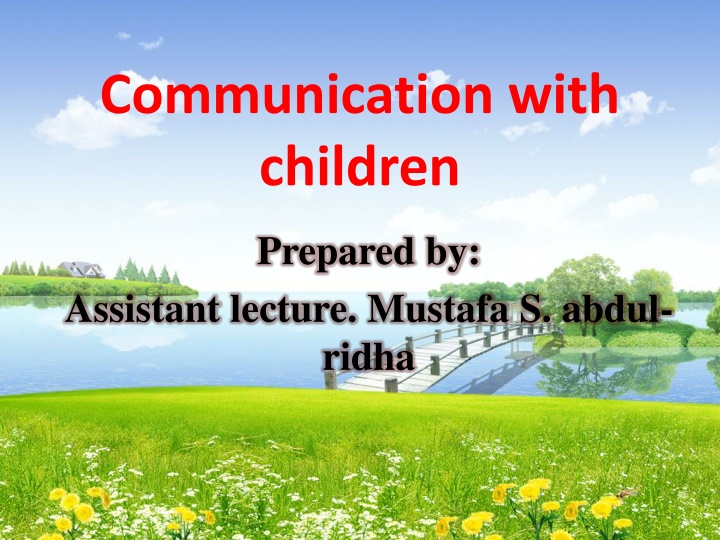
Effective Communication Strategies for Children: Techniques and Barriers
Discover effective communication strategies for children, including interpersonal communication elements, common ways of communication, and techniques like play, storytelling, and more. Learn about barriers and how to overcome them to enhance communication with children.
Uploaded on | 2 Views
Download Presentation

Please find below an Image/Link to download the presentation.
The content on the website is provided AS IS for your information and personal use only. It may not be sold, licensed, or shared on other websites without obtaining consent from the author. If you encounter any issues during the download, it is possible that the publisher has removed the file from their server.
You are allowed to download the files provided on this website for personal or commercial use, subject to the condition that they are used lawfully. All files are the property of their respective owners.
The content on the website is provided AS IS for your information and personal use only. It may not be sold, licensed, or shared on other websites without obtaining consent from the author.
E N D
Presentation Transcript
Communication with children Prepared by: Assistant lecture. Mustafa S. abdul- ridha
Definition Communication can be defined as the process by which people share ideas, experience, knowledge through the transmission messages. and of feelings symbolic
Interpersonal communication Is a person to person, two-way, verbal and non verbal interaction that includes the sharing of information and feelings . in health care settings takes place between service providers and their clients and members of the community.
What are the most common ways we communicate Spoken Word. Written Word. Visual Images. Body movements). Language (Gestures,
Elements of Communication Source (sender) or (nurse). Channel (Message) or( nursing care ). Receiver (patient). Feedback.
Effective communications Clear and concise. Accurate. Active listening. Relevant to the needs of the receiver. Timely. Meaningful.
Effective communications Applicable to the situation Know the subject well Be interested in the subject Know the audience members and establish a rapport with them Speak at the level of the receiver Choose an appropriate communication channel
Barriers to communication Language. Values and beliefs. Child age. Economic status for family. Child Educational level.
Barriers to communication Physical ,learning disorder). Attitude. Timing. Understanding of message. Trust. barriers (mental disorder
Communication techniques for children Play. Draw, paint, sculpt. Storytelling, word games. Read books; watch movies, videos. Write.
Basic for nursing communicating with children Introduce yourself and explain your role. Position should be at level of child. Allow to parent stay with child if need. Smile and eye contact with child. All quest ion direct and explanation if need. Good listening and pause.
Basic for nursing communicating with children Use family terms. Speak calm ,quit and confident. Use positive statement. Encourage child to express his feeling. Observe nonverbal cues. Older children need privacy.

